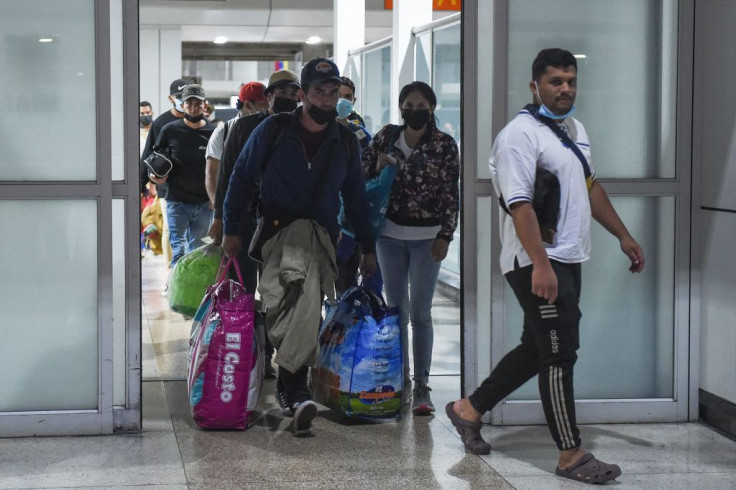
The U.S. and Mexico have increasingly expelled, returned or removed an increasing number of non-Mexican nationals from across the southern border under a public health order enacted by the Trump administration called Title 42. As the policy became more common, it also turned more controversial, as neither country published any formal agreement or guidance that explains or limits when or how such removals may be carried out.
Title 42 formally expired in 2023, and since then, immigration has continued to be a top concern for Americans and policymakers alike. The Biden administration, for instance, recently issued a sweeping executive order which provides for rapid deportations of individuals who enter irregularly, barring them from seeking asylum, and subjecting them to a heightened screeding standard for other fear-based protections from removal.
While the intricacies of the policy remain unclear, a Latino advocacy organization, the Instituto para las Mujeres en la Migración (IMUMI) seeks to bring more information to the topic in a recently published factsheet put together through testimonies, access to information requests, and secondary sources about the current practice of removals or returns of non-Mexican nationals.
After the Title 42 authority ended in May 2023, the U.S. continued to remove or return non-mexican nationals to Mexico under normal immigration processing rules. Between May 2023 and November 2023, Mexico had received 19,561 non-Mexican nationals from the U.S., according to the Mexican National Migration Institute.
From that figure, Venezuela, Guatemala, Honduras, Nicaragua and Cuba form the top five countries with the most expelled newcomers.
However, other institutions report different numbers. For example, a top U.S. immigration official stated in a sworn declaration in October 2023 that, between May and September of that year, around 21,000 non-Mexican nationals had been returned or removed to Mexico.
A few weeks prior, in September 2023, the Department of Homeland Security released a fact sheet stating that it had removed or returned 17,000 non-Mexicans since May of that same year.
A discrepancy in numbers is not the only issue permeating the deportation of individuals who cross the border, IMUMI argues. In fact, there are other issues in this practice that can put in danger the human rights and overall safety of these migrants.
One of these issues is that individuals do not receive fear screenings in the U.S. to assess for any fear of return to their country or origin before being removed to Mexico. Because of this, coupled with a lack of information in immigration proceedings, migrants are often left without status or protection in Mexico, creating a high risk of return to countries in which they face prosecution or torture.
Another of these issues is that Mexican officials immediately take non-Mexican returnees or deportees into custody and transport them by bus or plane to southern Mexico without consent, subjecting migrants to significant expenses and risks of violence from organized crime and Mexican authorities in their repeated transit across the country.
The factsheet comes as reports continue to show a decrease of migrant encounters at the U.S. border, primarily thanks to Mexico.
By comparison, early last year, Mexico interdicted roughly 100,000 migrants at its southern border or inside Mexico per month, while the U.S. was apprehending over 193,000 migrants monthly at the U.S.-Mexico border. This year, more migrants are being stopped inside Mexico than in the U.S., with over 280,000 being interdicted in Mexico and 189,000 in the U.S. in March, according to NBC News.
Experts and U.S. officials credit this costly process to increased dialogue between the two countries on issues like immigration, fentanyl and illegal firearms trafficking, particularly in meetings between the countries' leaders.
"President Biden and President AMLO have developed a relationship in which they talk about the shared challenges [of migration], and they both jointly recognize the shared challenges," a senior Biden official said last year. "They've had multiple calls over the last couple of years tackling and talking about this issue."
© 2025 Latin Times. All rights reserved. Do not reproduce without permission.




